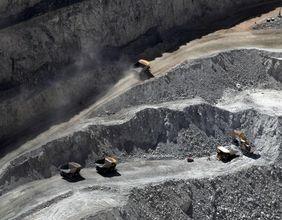Highlights
- Coalition proposes expanded critical minerals list and faster project approvals
- Bipartisan support for $3.4B ‘Resourcing Australia’s Prosperity’ program
- Junior explorers may benefit from extended JMEI funding
Australia’s mining and exploration landscape could be set for a major boost if the Coalition’s recently announced policy agenda becomes reality. The Association of Mining and Exploration Companies (AMEC) has welcomed the announcement from the federal Opposition, outlining a commitment to expand the national critical minerals list and halve project approval times.
Speaking at a leadership event in Perth, Peter Dutton announced that alumina, bauxite, phosphate, potash, tin, uranium, and zinc would be added to the critical minerals list under a future Coalition government. AMEC, which represents more than 500 companies, including junior explorers and emerging producers, noted the expanded list aligns with the needs of many of its members.
Australia’s mining sector has significant potential across several of these minerals. In 2023, the country produced over 19 million tonnes of alumina, with reserves estimated at 6 billion tonnes. Bauxite output stood at 102.3 million tonnes, while zinc production hit 1.24 million tonnes. Australia also produced 9,000 tonnes of tin and 4,820 tonnes of uranium in recent years, with tin resources at 353,000 tonnes and uranium reserves ranking the country fourth globally.
Several listed companies could benefit from these developments. For example, Alpha HPA (ASX:A4N) is active in the high-purity alumina space, while Australian Strategic Materials (ASX:ASM) engages in critical metals like tin and zirconium. Potash, while not yet in production in Australia, has drawn interest from developers like Australian Potash (ASX:APC), which is progressing its Lake Wells project. Boss Energy (ASX:BOE) is already advancing uranium projects, aiming to leverage Australia's 1,227 ktU in demonstrated resources.
AMEC highlighted that reducing project approval timelines could significantly enhance sector performance, especially for smaller players. Its CEO, Warren Pearce, emphasized that exploration and production efforts are often hindered by lengthy and duplicative approval processes.
Further bipartisan momentum is seen in the Coalition’s support for the $3.4 billion ‘Resourcing Australia’s Prosperity’ initiative, which had been previously announced by the federal government. This backing ensures long-term continuity for a program considered vital by industry participants.
In addition, the Coalition reaffirmed support for the Junior Minerals Exploration Incentive (JMEI), proposing a $100 million plan over four years. The JMEI has driven over $400 million in exploration since its 2017 inception. Companies like Encounter Resources (ASX:ENR), focused on greenfield projects, could stand to gain if the funding extension proceeds.
With strong signals of policy support, Australia’s critical minerals sector may be poised for accelerated growth and broader investment appeal.






